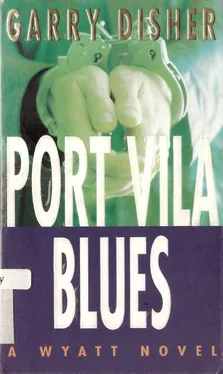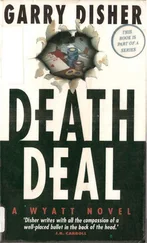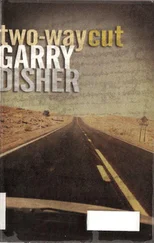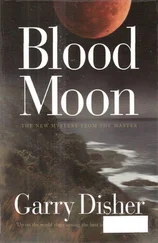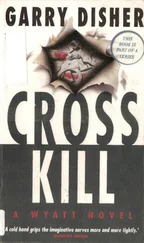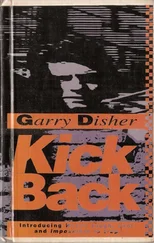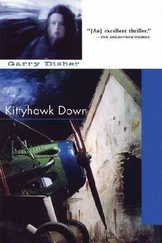Garry Disher - Port Vila Blues
Здесь есть возможность читать онлайн «Garry Disher - Port Vila Blues» весь текст электронной книги совершенно бесплатно (целиком полную версию без сокращений). В некоторых случаях можно слушать аудио, скачать через торрент в формате fb2 и присутствует краткое содержание. Жанр: Криминальный детектив, на английском языке. Описание произведения, (предисловие) а так же отзывы посетителей доступны на портале библиотеки ЛибКат.
- Название:Port Vila Blues
- Автор:
- Жанр:
- Год:неизвестен
- ISBN:нет данных
- Рейтинг книги:4 / 5. Голосов: 1
-
Избранное:Добавить в избранное
- Отзывы:
-
Ваша оценка:
- 80
- 1
- 2
- 3
- 4
- 5
Port Vila Blues: краткое содержание, описание и аннотация
Предлагаем к чтению аннотацию, описание, краткое содержание или предисловие (зависит от того, что написал сам автор книги «Port Vila Blues»). Если вы не нашли необходимую информацию о книге — напишите в комментариях, мы постараемся отыскать её.
Port Vila Blues — читать онлайн бесплатно полную книгу (весь текст) целиком
Ниже представлен текст книги, разбитый по страницам. Система сохранения места последней прочитанной страницы, позволяет с удобством читать онлайн бесплатно книгу «Port Vila Blues», без необходимости каждый раз заново искать на чём Вы остановились. Поставьте закладку, и сможете в любой момент перейти на страницу, на которой закончили чтение.
Интервал:
Закладка:
Wyatt had washed up in central and southern Africa when he left Indo-China, smuggling emeralds and De Beer diamonds. Something about the roadside commerce on the drive to Port Vila reminded him of Africa: the plain, flat-topped general stores painted white or left the colour of cement; the Coke signs, the palm trees and vines, the skin-and-bone dogs sniffing the dirt, the people themselves, bare-footed, dressed in bright simple cottons, watching the cars from shopfront verandah steps. But there was a torn, damaged look to some of the trees, a collapsed wall here and there, roofing iron weighed down with heavy stones as though frequent storms lashed the islands. Then the road climbed briefly and Wyatt found himself looking down into the cramped compound of the main prison. Meanwhile the taxi continued to brake and shudder on the broken road and Wyatt’s tooth ached.
The road flattened again as it entered Port Vila. The taxi crawled along the narrow main street, past small banks, cafйs and all-purpose stores. Wyatt glimpsed the harbour between the buildings, twenty or thirty moored yachts and Reriki Island farther out in the bay. A bloated, rusting shape at one end of the island materialised as a wrecked ship belly-up on the coral. Rusty inter-island cargo ships were moored at various points along the waterfront. For all the taxis, pedestrians, noise and colour it was a strangely still, flat-spirited place.
The taxi began to chug uphill, leaving the buildings and warehouses behind. The highway had been sliced into the hillside and Wyatt had a sensation of burial, the deep edges appearing to fold in on the taxi.
Then the road levelled again and ran parallel to a strip of costly cliff-top mansions overlooking the bay. The taxi drew into the kerb a minute later. The driver pointed. ‘We are here, sir. One thousand vatu please.’
There was no footpath, only a track in the dirt. Wyatt saw high fences and hedges, tiled roofs squatting low behind them. He paid the driver, got out, and walked back to De Lisle’s house, narrowing his eyes against the glare.
Three metres high, toughened steel, looped with razor wire, protected by alarms and sweep cameras, just like De Lisle’s place in the hills behind Coffs Harbour. Wyatt checked both corners at the front of the property: the fence plunged downhill to the water on each side of the house. Midway along the road edge was a locked gate that led directly to a short driveway that looped past the front door.
There were three ways in: scale a ladder and throw a bag over the razor wire, assuming he could find a ladder and a bag; cut his way through the steel mesh, assuming he could buy what he needed in Port Vila and do the cutting without being seen from the street; break open the lock on the gate, assuming he could get his hands on something like a tyre iron. And assuming he could evade alarms and cameras when he did get in. Wyatt prowled along the fenceline again, whistling softly, checking for dogs. There didn’t appear to be any.
He crossed to the other side of the road to a bench along the main wall of a tiny market. Judging by the Suva harbour master’s estimation, De Lisle wouldn’t be arriving for another twenty-four hours. A quick check of this part of the Kumul Highway told Wyatt that there were no hotels or motels nearby, so where could he station himself to watch and wait?
The island. It faced across to Port Vila and the cliff-top mansions on the Kumul Highway. Wyatt hailed a passing taxi and two minutes later he was in a small dirt parking area near the wharves at the bottom of the hill.
He could see the island clearly, a humped shape in the centre of the harbour, fringed with tropical trees, cabins on stilts just above the waterline. Two more rows of cabins were set further back and there was a large complex at the centre which Wyatt guessed housed offices, bars and dining rooms. There was also a roof among the trees at the peak of the hump. He’d read in Pacific Rim’s in-flight magazine that it had been the British Commissioner’s residence during the period of Condominium Government.
The Reriki Resort minibus had already delivered its load of passengers from the airport. Wyatt joined them under the shelter at the edge of the wharf. One or two looked at him curiously. He nodded and half smiled, not because he wanted to and they had shared a flight together but because it was expected of him and he didn’t want to draw attention to himself. Then the ferry drew in and they filed aboard.
The turnaround took thirty seconds, the crossing to the island two minutes. Wyatt examined the moored yachts keenly. Sydney, Southampton, Vancouver, Catalina Island. T-shirts, towels, shorts and underwear were pegged to dry on the rigging of the smaller yachts. One man was repairing a sail. Two couples were playing cards on a fast-looking red trimaran. The men wore shorts and beards, the women bikini tops and sarongs. There was an idle, easy assumption of privilege in the way they were indifferent to the ferry and the lives being led beyond the nearby harbour front.
Wyatt’s case was collected and he climbed the steep path to the main building. There were a dozen people waiting to be checked in. Wyatt pushed through to the desk, smiling apologetically. ‘I haven’t booked. Are you full?’
The clerk smiled at him. ‘Off season, sir. No problem.’
Wyatt slipped to the back of the line. A woman wearing a flower in her hair came out from behind the desk and showed him to a small waiting area. A minute later a waitress came by with a tray of drinks. It was the way things were done here, so Wyatt took a tall frosted glass of something and thanked her. He didn’t drink it. His case, he noticed, sat with a stack of luggage at the porter’s station, a tiny wooden stand like a pulpit in an impoverished church. Then he was called to the desk and he handed over his false passport and filled out the registration form and collected his key.
The porter showed him to number five, in the first row of cabins behind those at the waterline. Wyatt liked what he saw. The door opened onto a small alcove consisting of a wardrobe, refrigerator and handbasin. There was a bathroom off to the left. A doorway ahead of him led to a large main room furnished with a queen-size bed, cane lounge chairs and glass-topped coffee table, desk, television set, bedside phone and reading lamps, prints on the walls. The airconditioning hummed softly. A ceiling fan hung motionless above the bed. Wyatt turned the fan on, the airconditioning off, and checked under the bed, inside the wardrobe and behind the shower curtain.
Then he called room service and ordered a gin and tonic. He took it out to the balcony. A purple evening light was beginning to soften the edges of things. He eased his long trunk and legs into a cane chair and watched the ships’ and harbour lights wink on, the water darken and finally go black. At De Lisle’s house across the harbour there were no lights burning and the private dock was empty.
Thirty-five
The resort was deceptive. When dawn broke the next morning, Wyatt set out along the paths that stitched the parts of the island together, and found orderly rows of cabins stretching back up the hillside, concealed from sight by coconut palms, canopies of flowering vines, and small, almost comical trees which resembled stick insects, their rows of exposed roots like flexing legs.
Then the path gave way to a walking track which led through dense tropical growth as high as houses on either side of him. The soil felt springy under his feet and Wyatt enjoyed the sensation of his solitary state, the only man alive to see the sky brighten and smell the air grow steadily warmer and sweeter. There were spiders the size of his hands spread in ambush in dewy webs along the smaller corridors between the trees. Wyatt was reminded by their patience of his chosen life and reminded by their task that he could not afford to sit and wait, he was here to attack.
Читать дальшеИнтервал:
Закладка:
Похожие книги на «Port Vila Blues»
Представляем Вашему вниманию похожие книги на «Port Vila Blues» списком для выбора. Мы отобрали схожую по названию и смыслу литературу в надежде предоставить читателям больше вариантов отыскать новые, интересные, ещё непрочитанные произведения.
Обсуждение, отзывы о книге «Port Vila Blues» и просто собственные мнения читателей. Оставьте ваши комментарии, напишите, что Вы думаете о произведении, его смысле или главных героях. Укажите что конкретно понравилось, а что нет, и почему Вы так считаете.
